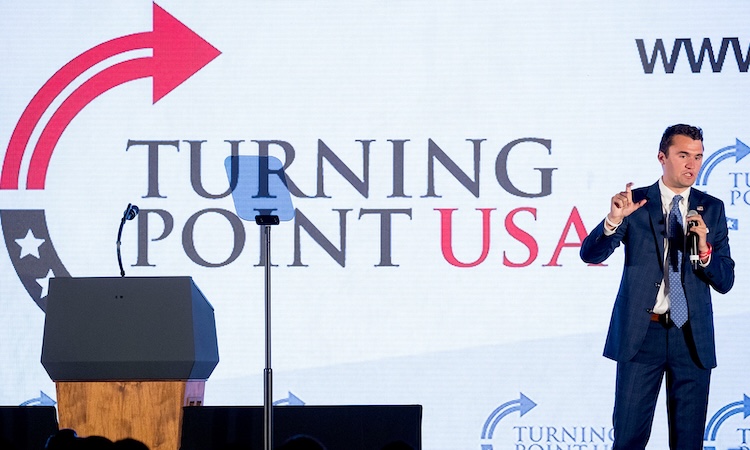As it struggles on through the pandemic, with supply chains disrupted and the economy dislocated, US capitalism is confronted with the paradoxical emergence of labour shortages in a number of sectors (notably the hospitality sector and agriculture) in apparent contradiction with the simultaneous mass unemployment prevailing overall.
This situation is driving legislators into some novel ways of plugging the employment gaps.
Agriculture
The shortage of labour in agriculture had already been a problem before the pandemic, with an exodus of workers away from the countryside to the cities. This population shift accelerated with the advent of Covid, and the nature of the poorly-paid and backbreaking toil attracted ever fewer workers.
To make the numbers up, the employers increasingly relied upon undocumented migrant workers. Because they had no papers and lived in permanent fear of being deported back to Mexico, these workers could be ruthlessly exploited. In Wisconsin, for example, 90 percent of dairy workers had no papers.
Working conditions are appalling, according to a medical anthropologist at the Johns Hopkins centre for health security, Monica Schoch-Spana. She reported: “Farmworkers often have pre-existing conditions such as diabetes or asthma from working in the fields or pesticide exposure, making it more likely they could become ill and have a more severe case of Covid-19.”
Farmworkers seldom have insurance or spare cash for medical treatment and bosses frown on doctor’s appointments. They work cheek by jowl in the fields and then return to overcrowded accommodation, raising the likelihood of infections. And if they venture to visit a health centre, they run the risk of running into an ICE (immigration and customs enforcement) stake-out. (Farmworkers are at increased risk for coronavirus by Janani Sundar, Badger Herald, 23 April 2020)
It has always been the case, and not just in Wisconsin and the USA, that if all the migrant workers were chased out of their jobs and deported, national economies would go down like ninepins. The ruling class wants the best of both worlds: a cheap and docile workforce and a useful focus for whipping up xenophobia and dividing the working class. But as it has dawned on the Wisconsin lawmakers that, without the work of all those despised foreigners, large gaps will start to open up on supermarket shelves, they have started to sing a different tune.
“In light of Covid-19’s detrimental effects on the US labour force and supply chain, many legislators and non-profit groups are focusing on recruiting migrant workers in the agricultural sector. According to the Wisconsin State Journal, the Farm Workforce Modernisation Act of 2021 could guarantee migrant farmworkers legal residency.
“‘If passed, the legislation would establish a temporary certified agricultural worker status for undocumented farmworkers who meet specific requirements, such as previous agricultural work experience and continuous presence in the United States,’ staff attorney at the Washington-based non-profit Farmworker Justice Andrew Walchuk said to The Wisconsin State Journal.” (Farm Workforce Modernization Act could help Wisconsin farmers to hire migrant workers by Jeffrey Deiss, Badger Herald, 23 September 2021)
So Wisconsin’s answer to agricultural labour shortages appears to be to (cosmetically) improve the lot of the Mexican workforce (until the pandemic ends). Whilst conceding a kind of temporary semi-legal status to these workers, their exploitation can only intensify as the number of available non-migrant workers continues to shrink.
Child labour
Wisconsin’s answer to labour shortages in the hotel and tourism industry, meanwhile, is to roll back child-protection laws, expanding the scope for exploiting child labour.
“Wisconsin’s Senate-approved a bill on Wednesday that would allow 14 and 15-year-olds to work until 11.00pm on some days – much later than current laws allow. Supporters of the bill say it could help plug the state’s labour shortage.
“Wisconsin currently sticks to federal child-labour laws, which stipulate that people under the age of 16 can only work between 7.00am and 9.00pm from 1 June to Labour Day, and between 7.00am and 7.00pm for the rest of the year.
“The proposed bill would allow this group to instead work from 6.00am to 9.30pm on days before a school day, and 6.00am to 11.00 pm when the next day isn’t a school day.
“In testimony to the state’s committee on labour and regulatory reform in June, Senator Mary Felzkowski and Representative Amy Loudenbeck said that the bill would help small businesses during the busy summer months.
“They said that ‘Businesses throughout the state see a massive increase in traffic during the summer tourist season, so much so that it can be difficult to find employees to work odd hours and seasonal times.’ And this sometimes resulted in businesses having to [God forbid!] close early so that the children could go home at the legal time.” (Wisconsin’s senate approves a bill allowing 14-year-olds to work as late as 11.00pm, and supporters say it could help plug the labour shortage by Grace Dean, Business Insider, 21 October 2021)
Did the thought never cross their minds that the difficulty in attracting adults to these jobs originates in the poor pay and conditions plaguing the industry, and that this could very simply be remedied? But no, the answer is keep the child up til eleven at night, and to hell with pointless fripperies like homework, hobbies, football or family time.
The last word comes from Lü Xiang, a research fellow at the Chinese Academy of Social Sciences:
“Recently, a country’s local legislative body approved a bill allowing 14-year-olds to work as late as 11.00pm. Some may think this was a case in a country that is not well developed. But actually, it was the state of Wisconsin of the US.
“For context, the US is the only United Nations member state that hasn’t ratified the UN Convention on the Rights of the Child. The US, which prides itself on being a ‘beacon of democracy’ and a guardian of human rights, is undergoing a major regression …
“The US remains at the bottom of the world in terms of protecting the rights of children … The current laws are already shocking enough. But Wisconsin’s bill is even worse. Since Washington cannot even protect the most vulnerable groups (children, women, the elderly, and so on) in the US, this begs a key question: How can it be qualified to keep talking about protecting human rights internationally?
“Supporters (especially hotel and tourism industry lobbyists) of Wisconsin’s bill say it could help plug the state’s labour shortage. But in fact, the US is facing waves of unemployment, resignations, strikes, and labour shortages. This abnormal phenomenon reflects the structural imbalance in the US labour market. And this imbalance is the result of long-existing social problems. It cannot be solved by adjusting child labour laws.
“On the contrary, the state of Wisconsin has decided to pass a bill to legalise the violation of children’s rights instead of protecting their rights to grow up healthily and be well educated. The harm it will cause to the future of the US is way more serious than solving the current labour shortage. Other US states could copy-cat it.
“Most jobs that children can and need to be hired to do until late are low-paid physical works such as washing dishes and scrubbing floors in restaurants. By using children who need to be educated and to grow up healthily to fill such labour vacancies, it will only make the poor children who are forced to choose these jobs even poorer in the future.
“As they lose their basic rights to grow healthily and receive education, these kids will not be able to become qualified workers. Instead, they will gradually become a group of people who muddle along. In other words, they will become destabilising factors for American society.
“President Biden is desperately keen to wield the power of example globally. But the hard reality is this: today’s America is an example of a decaying power.
“In a sense, this kind of legislation about child labour will actually solidify the disparity between different classes in Wisconsin, and across the US. Most of the people who do the grassroots work are of ethnic minorities and immigrants. Such a bill might harm the interests of these groups legislatively, widening the social gap. These ethnic groups are already in a downward spiral, and this bill reflects a trend that will accelerate this spiral, creating even more serious social problems for the US.
“If something like this happened in China or other countries to which the US is hostile, there could be a moral carnival for US media outlets. They would use eye-catching headlines and fierce words such as ‘slavery’ and ‘oppression’ to attack those countries. But as it is actually happening in the US, only a few outlets pay attention.
“A handful of their bland reports can hardly attract the attention of the whole country. Unconsciously, the double standard of the US on such issues has harmed the US itself. It has lowered its own moral standards, making American society as a whole apathetic.
“If the young people are strong, the country will be strong. At the very least, the US’s failure to protect the rights and interests of its children will harm the teenagers and their families. More broadly, it will affect the improvement of the whole country’s moral fibre.
“This will cause irreparable damage to the US. As a result, the US’s decay will be accelerated as well.” (Wisconsin’s child labour bill epitomizes decaying US power by Lü Xiang, Global Times, 26 October 2021)
















